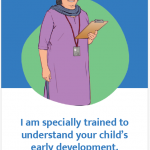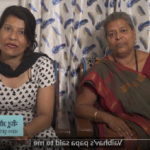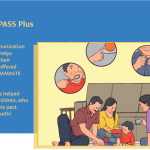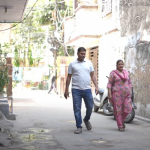Community engagement toolkit
This multi-component toolkit was co-designed with input from 209 individuals including caregivers, autistic adults, health professionals, and community advisory board members across the four study sites in India, Nepal and Sri Lanka.
The outcome is a suite of nine multimedia tools, including:
- awareness posters
- child developmental milestone calendars
- training materials for health workers
- informational videos and flyers.
These resources are tailored to support caregivers in recognising early signs of NDDs and accessing appropriate screening and care pathways. They also help non-specialist health and care workers to raise awareness about child development in the community and facilitate neurodevelopmental delay and disorder (NDD) screening.
We are undertaking ongoing research to assess the effectiveness, usability and impact of the toolkit across different implementation contexts. This will help us refine the toolkit further, identify practical challenges and amplify the voices of caregivers and community workers in shaping inclusive, responsive healthcare systems.
What’s in the community engagement (CE) toolkit?
Awareness posters
Two posters focusing on early developmental milestones encourage caregivers to seek help from their local non-specialist health workers, if concerned. These are meant to be placed within immunisation centres and community pre-schools, and at health posts.
Information pack and testimonial video
The information pack contains a printed document about the PASS Plus or WHO CST interventions, and aims to help caregivers understand the intervention and the importance of their role throughout the intervention.
These will be provided to families at the start of the intervention. Caregivers enrolled into PASS Plus also receive a testimonial video by a family that has completed the intervention.
Child development milestone (CDM) calendar
An interactive calendar to facilitate caregivers’ use of existing child development trackers (CHDR in Sri Lanka and MCP card in India), bust common myths and build caregivers’ knowledge about development milestones.
All caregivers with children under two years old will be provided with the CDM calendar by non-specialist workers (NSWs).
Health specialist video
This video features a context-relevant health specialist, such as a developmental paediatrician who reassures caregivers after NDD detection, and encourages them to enrol for the offered intervention.
These will be shared by NAMASTE programme personnel to the family after detection of a NDD.
Post-intervention resources
This tool component contains frequently asked questions about accessing government-aided services, disability certification and long-term care for each site. These resources will be provided to families by the intervention deliverer at the end of the intervention.
It includes story snippets to demonstrate the steps in applying for government aid, and a QR code that links to an expanded list of resources for each location.








